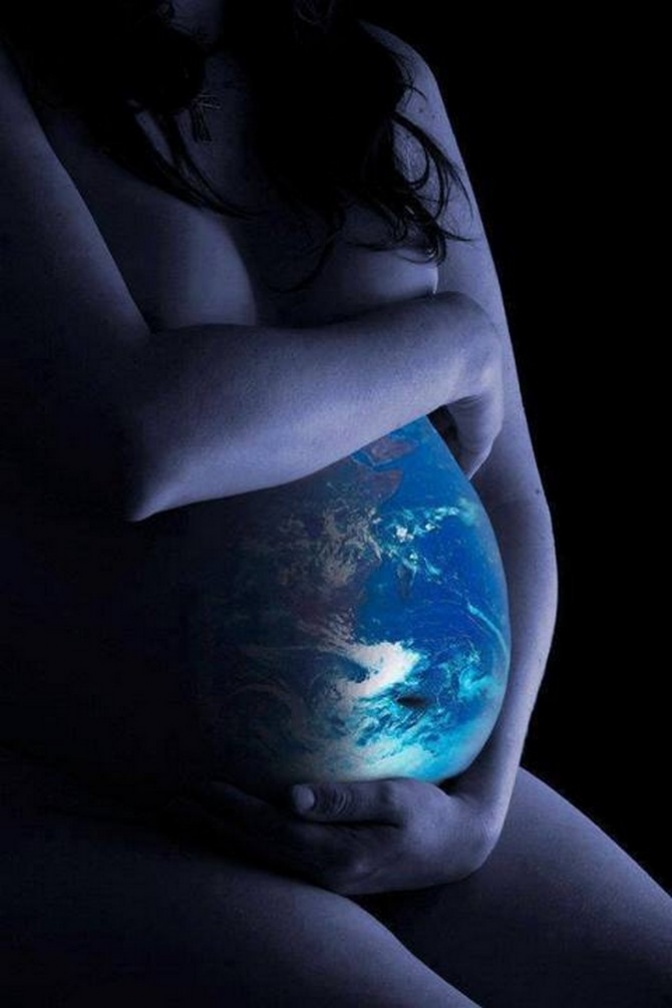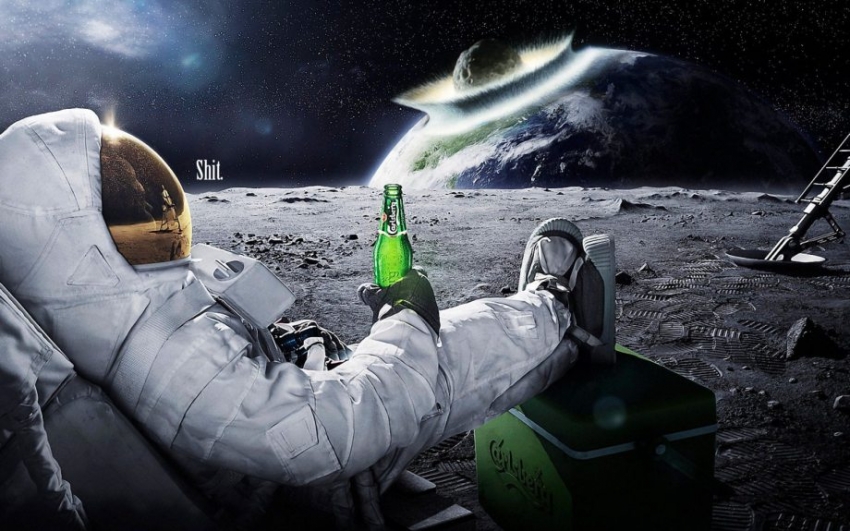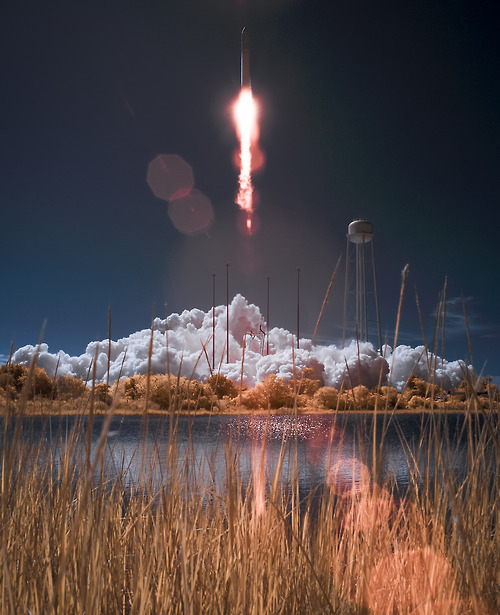To put it bluntly, we are pretty much screwed unless we get our heads out of our asses–We still have time, but the only way we’re going to make a big difference, is to do it collectively.”
-David Mizejewski, naturalist and media personality with the National Wildlife Federation (NWF).
The Collective Effort
One of the problems with moving to a more sustainable society, is that humans don’t like change. That is just not how we work. In addition, most of us can’t imagine that our individual choices make that big of a difference on a grand scale. However, when you multiply this thinking by millions of people, we’ve collectively had a bigger impact on the environment than we realize. This is both the bad and good news to this story, as the very collective negligence that has caused so many problems, can also detour us from the collision course we are currently headed.
“Mother Earth is in a serious transition period; Humanity will face all kinds of challenges—health and aging, emotional and mental imbalances, employment and finances, climate and environment, terrorism and war,” warns Dr. Zhi Gang Sha, Tai Chi Master, medical doctor, and author of the Soul Power book series. “The world is in great danger, but it will not end.” This is perhaps the best news of all, as each of us has been asked to play a very important role in Mother Earth’s recovery. The first step is understanding what we’re up against.
Climate Change and Renewable Energy
“On the broad level, there are two issues we will face over the next hundred years,” says Dr. Jeff Schweitzer, a former science adviser to the white house, and author of Beyond Cosmic Dice: Moral Life in a Random World. “The first is climate change, and independent of that, but related to it, is the move from fossil fuels to a renewable-energy economy; These are critical if we are going to survive.”
“I’m not anti-oil,” says Schweitzer. “Oil accounts for 80 percent of energy demand; We are not just going to turn that off.” Instead, over the next 50 years we should slowly wean the world off these harmful practices, putting us on track to a more sustainable future. However, what stands in our way is not just the merchants, politicians, oil companies, and big money invested in the survival of the old ways. It’s having a clear understanding of what the scientific data actually says.

Doing Your Part
“Let’s look at what science says about this topic,” says Mizejewski. “You need to make logical decisions based on science, and not who is making millions of dollars.” A lot of people trust the media to do the dirty work for them, by evaluating the data. However, the result is often more opinion than fact. To understand climate change, you need to read the scientific data for yourself, making your own conclusions as to what is real and not real.
“We don’t see the landfills. We don’t see the trees that are getting diseases and dying, but it is still happening,” explains Jolene Hanson, The director of the G2 Gallery, which promotes environmental awareness through the support of artists and various green programs. “We are heading towards a climax, yet most of us don’t even realize it.” Once you have an understanding of what the science says, there are proven ways to protect yourself, and the future of the human race.
Think
Think about the amount of greens that went into a single steak. Think about the amount of water and chemicals needed to wash a bath towel that has been used only once. Think about the message you send to merchants when you choose to purchase products with minimal packaging. Think about creating a yard and garden that matches your local eco-system. Plant trees with berries for birds to eat, and places where nests can be built.
Reduce Your Use of Plastics
You can find plastic in your cell phone, laptop, carpet, and credit cards. Where you may not notice them is piling up in your landfill, or floating around in massive gyres in the Pacific. None-the-less, they are there. “Not a single artifact salvaged from the Titanic was plastic,” explains Schweitzer. “Plastics were just not used then.” This should give you an idea of the amount of damage non-biodegradable plastics have accomplished over a short period of time.
Boycott Bottled Water
“We have to stop this thing with drinking bottled water,” urges Schweitzer. “It is an environmental disaster; It is expensive, creates huge amounts of waste, and guess what? Tap water meets higher standards of purity.”
Recycle
You won’t be able to ban all plastics from your life, but you can recycle what you can’t avoid. It’s easy, and it offers eight huge incentives. It reduces the amount of land needed for landfills, saves energy, reduces air and water pollution through industrial production, supplies valuable raw material to industry at a lower cost, reduces greenhouse-gas emissions, conserves natural resources, creates jobs, and stimulates the development of green technologies.”
Prevent Disease
“If we stopped pumping C02 in the air, today, we would still see an effect,” says Schweitzer. “We have already past the tipping point; We need to prepare.” Disease carrying mosquitoes are marching our way, because of the gradual warming of our planet. While supporting the research and development of new vaccines is important, on a more personal level, you should educate yourself on the best methods to prevent being bitten while outdoors this Spring and Summer.
Vote Mother Earth
If we collectively vote in political figures who understand the need to take care of Mother Earth, we will be sending the message that we do care. “Get involved by calling your local representatives; If you care about having clean air, clean water to drink–If you care that there are polar bears in existence, because guess what? They are on their way out the door,” says Mizejewski. “Our voice is the only one that our animals and natural resources have.”
Support Green Technology
“This country was founded on innovation–However, unless you are a company like Apple, innovation is not allowed,” says Paul Wheaton, one of the premier permaculture mavens, and comical host of the website, Richsoil.com. On an entirely different level, we need to begin supporting the technology which may not have mainstream popularity, such as genetically engineered crops. One of the more amazing developments that has maintained limited awareness in urban areas is the rocket mass heater.
Rocket Mass Heater
“For $20 or $50 bucks you’ve got everything you need, and you can build it in a weekend,” says Wheaton. The innovator behind the design, Ianto Evans, began trying to help the people of Africa. They didn’t believe in using chimneys, which caused many serious eye and lung problems among the villagers. Evans came up with the rocket stove, which used 10 times less wood, and because it re-burns its own smoke, it puts out 50 to 100 times fewer pollutants into the air. “You can heat your home using the sticks that fall off your trees,” says Wheaton. “There is only a pinch of smoke when it starts; it heats up quick, and there is no smoke thereafter.”
Genetically Modified Crops
“We need to promote genetic engineering to create salt and drought-resistant crops because we are running out of arable land,” warns Schweitzer. “This is the only way we will be able to feed the six billion people that will be inhabiting the earth one day.” Such crops will resist pesticides and herbicides. They will contain essential nutrients that are not commonly found today, improving the survival rate in most malnourished countries. Perennial crops will be engineered to grow deeper roots, minimizing cost, soil erosion, and will be more resistant to the changing weather patterns caused by global warming.
Smart Outlets
On a smaller scale, “smart” outlets regulate when certain electronics have power. While not all electronics are true energy vampires, sucking large amounts of energy when turned off, certain household appliances can benefit from this technology. To find out where the worst vampires are in your own home, use an electricity usage monitor to sniff out common foes, such as home office computer networks, and plasma (HDTV) home theater systems.
Adaptation and Survival of the Fittest
While humans have been designated Mother Earth’s protector, it is interesting to note her amazing will to adapt and survive on her own. In recent years, researchers have discovered microorganisms living deep within Antarctica’s glaciers, surviving without light or oxygen. A Spruce tree was found implanted on a man’s lung after he apparently inhaled one tiny seed. The five centimeter long tree was discovered inside his chest cavity after surgeons were pressed to operate on what they thought was a tumor.
Not only are we fighting for Mother Earth; She appears to be fighting for her own survival. And in many ways she is doing a miraculous job–despite her odds.
About Dr. Eric J. Leech
Eric has written for over a decade. Then one day he created Urbasm.com, a site for every guy.

